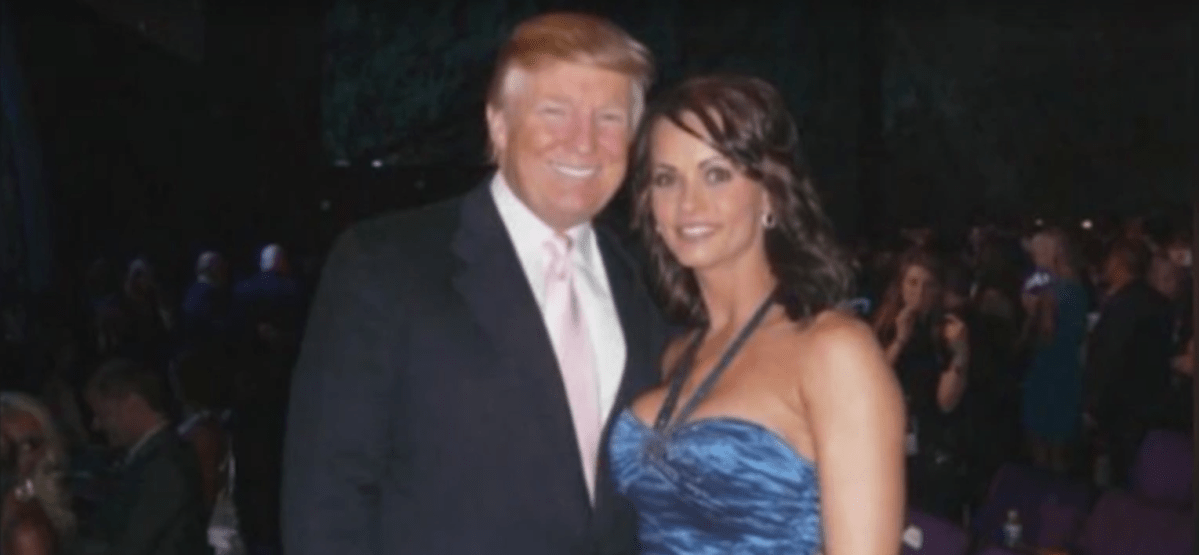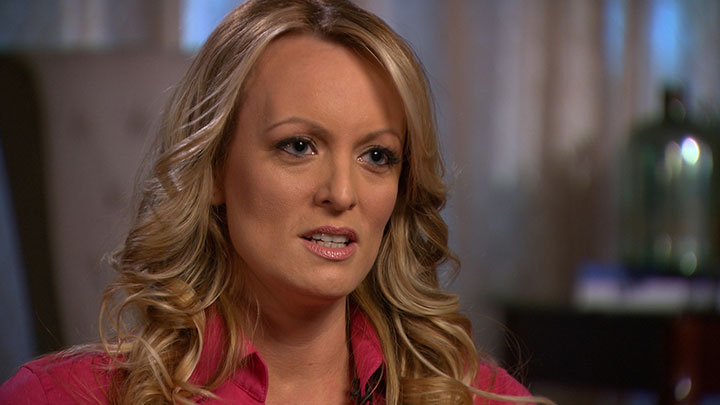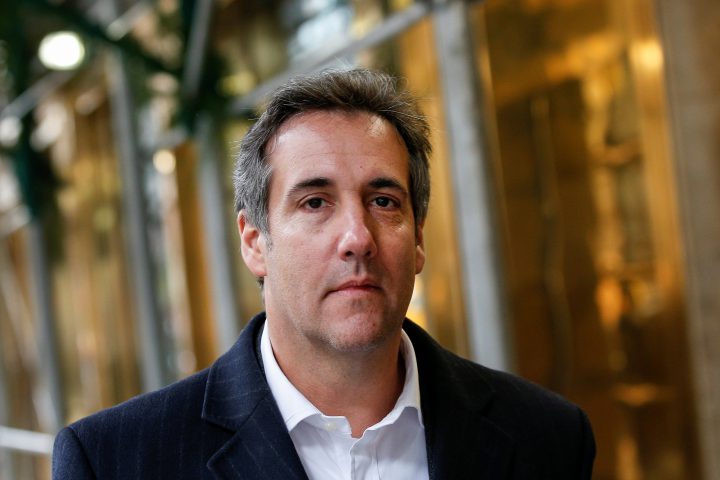Michael Cohen, U.S. President Donald Trump‘s former lawyer, pleaded guilty to eight criminal charges including tax evasion, unlawful campaign contributions and making false statements to a bank in Manhattan federal court on Tuesday.

The plea came as part of a deal with prosecutors that could see him spend as much as five years in prison.
Cohen’s court appearance also came on the same day that Paul Manafort, Trump’s former campaign manager, was found guilty on eight of 18 counts of tax and bank fraud after jurors deliberated for four days.
Coverage of Michael Cohen on Globalnews.ca:
But what, exactly, is Cohen alleged to have done?
The details of the charges against him were recounted in information released by the Department of Justice — although no names were disclosed in the documents, save for Cohen’s.
In total, Cohen was charged with five counts of tax evasion, one count of making an excessive campaign contribution, one count of causing an unlawful corporate campaign contribution and one count of making false statements to a federally insured bank.
In pleading guilty, Trump’s ex-lawyer said he arranged payments “for (the) principal purpose of influencing (the) election” at the behest of a candidate.
- Alberta to overhaul municipal rules to include sweeping new powers, municipal political parties
- Canada, U.S., U.K. lay additional sanctions on Iran over attack on Israel
- Trudeau says ‘good luck’ to Saskatchewan premier in carbon price spat
- No more ‘bonjour-hi’? Montreal mayor calls for French only greetings
Cohen didn’t name the candidate in the court documents, however the Justice Department release indicated that, starting in January 2017, Cohen acted as “personal attorney” for an individual “who by that time had become the president of the United States.”
WATCH: ‘Guilty’ and ‘Criminal’ projected onto the wall of Trump Hotel in Washington

Here’s a list of allegations as detailed by the Department of Justice:
$280,000 in payments to silence two women who alleged affairs with Donald Trump
Donald Trump launched his presidential campaign on June 16, 2015. Cohen didn’t have a formal title with the campaign but he did advise it on issues of interest to the media.
Two months after Trump’s campaign began, the chairman and chief executive of a media company that owns a “popular tabloid magazine” offered to assist by helping to identify negative stories, such as the candidate’s relationships with women, for the purpose of buying the stories and preventing their publication.
Karen McDougal, an ex-Playboy model, came forward to sell her story in June 2016, alleging that she had an extramarital affair with Trump in 2006 and 2007. McDougal has since mounted a lawsuit seeking her release from a legal agreement that required her to stay silent about the alleged “romantic relationship.”
The lawsuit was filed in March against American Media, Inc., which publishes the tabloid National Enquirer. The White House has said Trump denies having the alleged affair.
McDougal’s lawyer offered to sell her story to a publication that was owned by the media company, whose chief executive offered to help the Trump campaign.
The media company agreed to acquire “limited life rights” to the woman’s story for $150,000 and committed to featuring her on two magazine covers and publishing over 100 articles that she would write.
READ MORE: Michael Cohen pleads guilty, says Trump ordered payments with ‘purpose of influencing election’
However, publishing the alleged affair wasn’t the point here — rather, it was keeping her story from influencing the election.
That agreement included a non-disclosure portion, and the rights to that part of the agreement were assigned to Cohen, the Justice Department said.
To carry out the transaction, Cohen created a corporate entity known as Resolution Consultants LLC, but the deal was soon called off. Cohen was told to tear up the agreement.
Then, in October 2016, an agent for an adult film actress went to the editor of that same magazine, saying she was willing to confirm an alleged affair with Trump.
Stormy Daniels, an adult film star whose real name is Stephanie Clifford, has said that she had an affair with Trump that started in 2006 and that she was paid hush money to stay quiet about it.
She has offered to repay the money so that she would be free to speak. Trump has denied having an affair with her.
Cohen was then put in touch with a lawyer who was representing both women. He negotiated a $130,000 agreement to buy the adult film actress’ silence.
But Cohen didn’t execute the agreement right away.
On Oct. 25, 2016, the editor was informed that Daniels had almost completed a deal with a separate media outlet.
The editor texted Cohen, telling him: “(W)e have to coordinate something on the matter (the lawyer is) calling you about or it could look awfully bad for everyone.”
Cohen subsequently agreed to pay Daniels and called her lawyer to finish the deal.
The following day, he took steps to form a shell corporation known as Essential Consultants LLC.
Cohen drew $131,000 from a home equity line of credit that he had fraudulently obtained and asked that the money be placed in an account associated with Essential Consultants, the Justice Department said.
READ MORE: Trump was recorded discussing potential payout to Playboy model, Giuliani confirms
Then, on Oct. 27, 2016, Cohen transferred about $130,000 from Essential Consultants to the adult film actress’ lawyer.
On a form that he used to complete the transfer, Cohen “falsely indicated” that the purpose of the money was “retainer,” the Justice Department said.
“Cohen caused and made the payments described herein in order to influence the 2016 presidential election,” said the department’s release.
The Justice Department went on to say that he would seek reimbursement for expenses relating to the election, presenting to the Trump campaign a bank statement from Essential Consultants that “reflected the $130,000 payment, plus a $35 wire fee” and added $50,000 for “tech services.”
These amounts added up to $180,035.
Executives with Trump’s company later “grossed up” Cohen’s request to $360,000 for tax purposes and added a bonus of $60,000, putting the total amount of money he received at $420,000 — money that would be paid to him in monthly instalments of $35,000 over the course of a year.
READ MORE: Ex-Playboy Playmate Karen McDougal sues to break silence on alleged Donald Trump affair
Cohen was told to send invoices for those payments. He sent the first one in February 2017, requesting “(p)ursuant to (a) retainer agreement, … payment for services rendered for the months of January and February, 2017.”
Subsequent invoices would contain similar language.
Trump’s company “accounted for these payments as legal expenses,” even though there was “no such retainer agreement, and the monthly invoices Cohen submitted were not in connection with any legal services he had provided in 2017,” the Justice Department said.
Over $4 million in income hidden from the IRS
In addition to his work with Trump, Cohen owned taxi medallions in Chicago and New York City worth millions of dollars.
He leased these medallions to operators, who then paid him some of their income.
From 2012 to 2016, Cohen earned over $2.4 million in income from a number of loans he had made to a taxi operator after leasing this person “certain of his Chicago taxi medallions.”
This money wasn’t disclosed to the IRS.
The Justice Department also said that Cohen hid over $1.3 million in income from a taxi operator who was leasing “certain of his New York taxi medallions.”
The New York taxi operator had paid Cohen a bonus of $870,000 in 2012 so that he could operate “certain of Cohen’s medallions.”
However, Cohen didn’t report the “substantial majority” of this bonus, the Justice Department said.
READ MORE: Rudy Giuliani says Trump is ‘absolutely in the clear’ following Cohen guilty plea
Cohen also hid almost $1 million in taxable income that he had received from this taxi operator in connection with his medallions, the department added.
He did this by arranging to receive a share of the money he had made personally, instead of having it paid to his medallion entities, the release noted.
In 2013, an accountant working for Cohen filed amended 2011 and 2012 tax returns with the Internal Revenue Service. This accountant also completed individual returns for Cohen and for his medallion and real estate entities for the tax years 2013 to 2016.
Had the money been paid to Cohen’s medallion entities, his accountant would have noticed and included the income on his returns, the Justice Department said.
Cohen also kept from his accountant — and the IRS — a $100,000 payment he had received for brokering a property sale in Florida, $30,000 in profit for arranging the sale of a Birkin Bag and over $200,000 in income from an assisted living company that was “purportedly for Cohen’s ‘consulting’ on real estate and other projects.”
All told, Cohen hid over $4 million from the IRS and avoided paying taxes totalling over $1.4 million, according to the Justice Department.
False statements to a bank in connection with a $500,000 home equity loan
Cohen obtained a $6.4-million loan from a bank in 2010.
The following year, he went to that bank and obtained a $6-million line of credit. Both of them were collateralized — or guaranteed — with his taxi medallions.
The line of credit was increased to $14 million by February 2013, said the Justice Department.
Then, in November 2014, he refinanced his medallion debt at a second bank.
That bank shared the debt with a credit union, and the debt was set up as individual loans to entities that owned Cohen’s taxi medallions.
Cohen paid off his debt to the first bank with money he received from the second institution and the credit union when the loans closed. His line of credit with the first bank was closed.
In 2013, Cohen approached a third bank for a mortgage on his Park Avenue condo.
When he applied for a mortgage, he only disclosed the $6.4-million loan he had with the first bank — not the $14-million line of credit.
READ MORE: Donald Trump audio recordings raise questions about Michael Cohen’s end game
Two years later, Cohen would try to obtain financing from the third bank so that he could buy a summer home for about $8.5 million.
Once again, he did not disclose the $14-million line of credit.
In the course of trying to secure financing, the third bank obtained a personal financial statement that the second bank had received from Cohen.
The third bank asked Cohen about the $14-million line of credit after noticing it had been omitted from the mortgage application he filed in 2013.
Here, Cohen misled the bank, according to the Justice Department, saying money hadn’t been drawn from the line of credit, when Cohen had “effectively overdrawn the line of credit, having swapped it out for a fully drawn, larger loan” shared by the second bank and the credit union.
The third bank said it would only approve his financing if he closed the $14-million line of credit.
The Justice Department alleged that Cohen lied to that bank, saying in what it called a “misleading” email, “the medallion line was closed in the middle of November 2014.”
Then, in December 2015, Cohen approached the third bank once again, this time seeking a home equity line of credit.
Cohen said that he and his wife had a positive net worth of over $40 million — but omitted the $14 million in medallion debt he had with the second bank.
“Because Cohen had previously confirmed in writing to (the third bank) that the $14-million line of credit had been closed, (the third bank) had no reason to question Cohen about the omission of this liability on the HELOC application,” the department said.
Cohen also omitted “at least $70,000 in monthly interest payments” to the second bank, which were linked to his medallion debt.
Ultimately, the third bank approved a $500,000 HELOC in April 2016 — something that would not have happened if he hadn’t “fraudulently (concealed) truthful information about his financial condition.”
Sentencing
Cohen is scheduled to be sentenced on Dec. 12 at 11 a.m.
The maximum penalties for each charge are as follows: five years in prison for tax evasion, 30 years in prison for making false statements to a federally insured bank, five years in prison for causing an unlawful corporate campaign contribution and five years for making an excessive campaign contribution.
Lanny Davis, Cohen’s lawyer, tweeted on Tuesday that his client “stood up and testified under oath that Donald Trump directed him to commit a crime by making payments to two women for the principal purpose of influencing an election.”
“If those payments were a crime for Michael Cohen, then why wouldn’t they be a crime for Donald Trump?”
—With files from The Associated Press













Comments